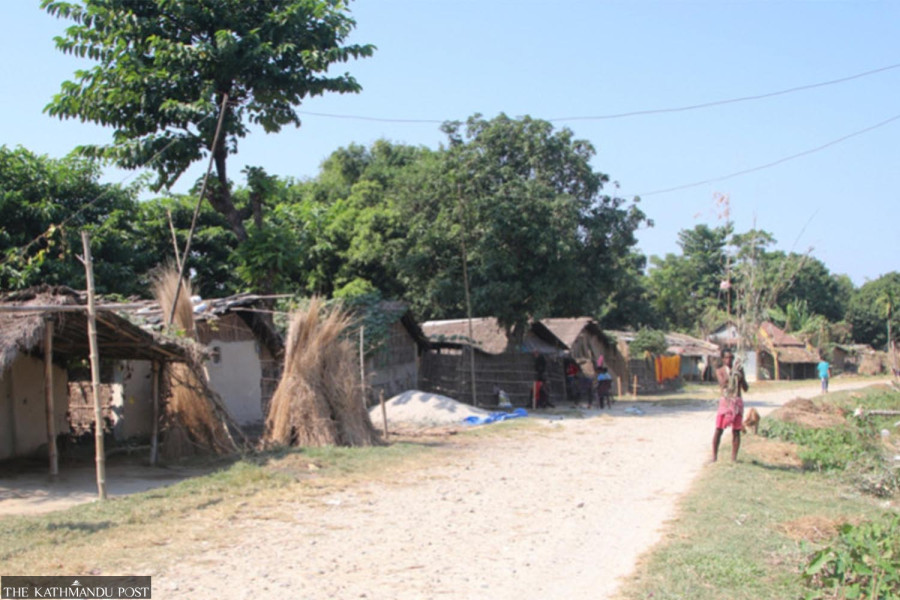National
Do not evict landless squatters, commission tells governments
Land problem resolution panel says removing them without proper arrangements breaches their constitutional rights.
Post Report
The Land Related Problems Resolution Commission has urged all tiers of government not to evict the landless squatters and unplanned settlers until it completes its task.
Citing the constitutional and legal provisions that ensure right to settlement and right to live with dignity, the commission has said evacuating the settlers without proper management would breach the statutory provisions.
While the commission is still working to identify landless squatters and come up with ways to manage unplanned settlers, it has received reports of forceful displacement, reads a statement from the commission. A sustainable solution is impossible if all tiers of government intervene in the matter, it warned.
“Therefore, the commission requests all the agencies concerned not to resort to forceful evacuation of the landless squatters and unplanned settlers until the commission completes their proper identification and management.”
Different local units including the Kathmandu Metropolitan City have time and again tried to evict the squatters. The commission claims that the eighth amendment to the Land Act clearly mentions all Dalit squatters would be given land for one time while it provisions land for other squatters as well.
The incumbent government, by amending the Act through an ordinance, has further eased the land distribution process.
Rights activists welcomed the commission’s call saying it is vital to stop arbitrary removal of the landless people. “Depriving the poor landless of their settlement and livelihood rights is not merely a violation of human rights, it also goes against the humanitarian law,” said senior advocate Raju Prasad Chapagain. “This problem calls for a sustainable solution.”
Though several commissions have been formed since the restoration of democracy in 1990, proper management of the landless has never happened.
The current commission, led by CPN-UML leader Hari Prasad Rijal, was formed in October last year by the KP Sharma Oli administration. Earlier, a similar commission was dissolved by the erstwhile Pushpa Kamal Dahal-led coalition government.
The Dahal government had on March 22 last year dissolved the National Land Commission (NLD). The Sher Bahadur Deuba government had constituted the NLD in September 2021, under Keshab Niraula, former chairperson of the Nepali Congress-affiliated Nepal Teachers’ Union.
There has been a competition among successive governments to dissolve an existing land commission and form a new one. Prior to formation of the Niraula-led commission, Deuba had dissolved the mechanism formed by his predecessor, KP Sharma Oli, which was led by Devi Prasad Gyawali, a UML leader who lost the mayoral race in Bharatpur Metropolitan City to Renu Dahal of the Maoist party in the 2017 elections.
Before its dissolution, the Niraula-led commission had received 1,077,446 applications and distributed land registration certificates to 4,586 families, according to the information published on the commission’s website.
The Rijal-led commission, whose district-level subordinate committees are yet to get full shape, is the 16th such panel formed since the restoration of democracy in 1990 to distribute land to the landless. Under the commission, each district has separate committees for facilitation.
The government last week appointed members of the district committees.
In three months since its formation, the commission has collected 20,000 applications but hasn't distributed new land registration certificates. It is looking into 1.09 million applications to see who actually need land.
Records at the land management ministry show that around 46,000 bigha (30,820 hectares) land has been distributed to some 150,000 families in the past three decades. However, tens of thousands of families are still landless.




 11.12°C Kathmandu
11.12°C Kathmandu













